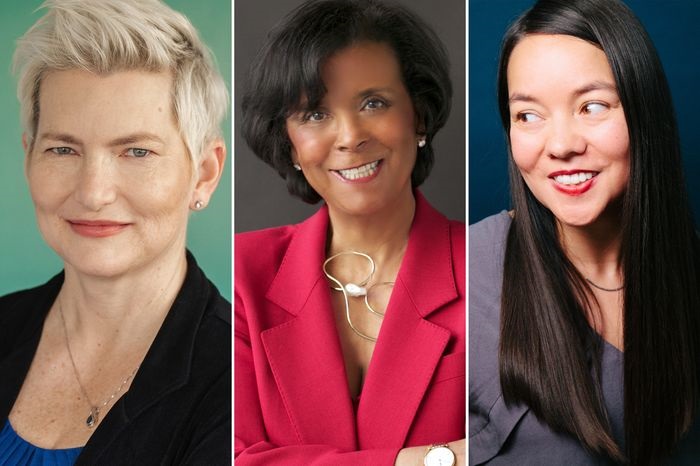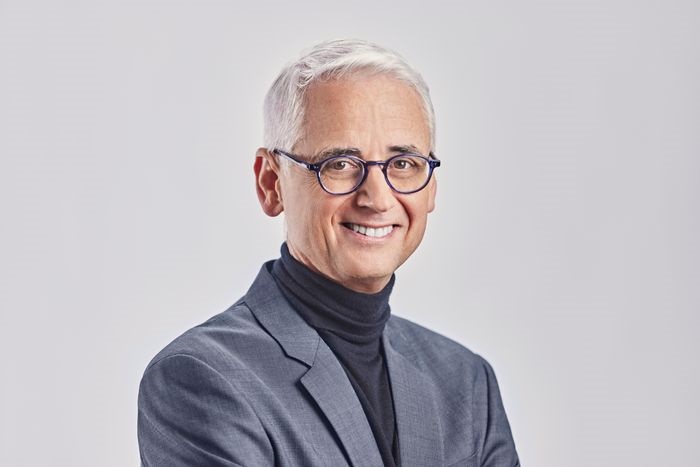The Rise and Fall of the Chief Diversity Officer

(From left: Melinda Starbird, a human resources and diversity executive; Dani Monroe, former CDO for Mass General Brigham; and Miriam Warren, CDO for Yelp.) Photo Illustration: Melinda Starbird, Cheryl Richard, YELP
Two years ago chief diversity officers were some of the hottest hires into executive ranks. Now, they increasingly feel left out in the cold.
Companies including Netflix, Disney and Warner Bros. Discovery have recently said that high-profile diversity, equity and inclusion executives will be leaving their jobs. Thousands of diversity-focused workers have been laid off since last year, and some companies are scaling back racial justice commitments.
Diversity, equity and inclusion—or DEI—jobs were put in the crosshairs after many companies started re-examining their executive ranks during the tech sector’s shake out last fall. Some chief diversity officers say their work is facing additional scrutiny since the Supreme Court struck down affirmative action in college admissions and companies brace for potential legal challenges. DEI work has also become a political target.
“There’s a combination of grief, being very tired, and being, in some cases, overwhelmed,” says Miriam Warren, chief diversity officer for Yelp, of the challenges facing executives in the field. Warren says the fear that company commitments are imperiled fuel her and others to feel “more committed to the work than ever.” Yelp’s DEI budget has grown for the past five years.
In interviews, current and former chief diversity officers said company executives at times didn’t want to change hiring or promotion processes, despite initially telling CDOs they were hired to improve the talent pipeline. The quick about-face shows company enthusiasm for diversity initiatives hasn’t always proved durable, leaving some diversity officers now questioning their career path.
In the wake of George Floyd’s murder in police custody in May 2020, companies scrambled to hire chief diversity officers, changing the face of the C-suite. In 2018, less than half the companies in the S&P 500 employed someone in the role, and by 2022 three out four companies had created a position, according to a study from Russell Reynolds, an executive search firm.
Once mostly tasked with HR matters, today’s diversity leaders are expected to weigh in on new product development, marketing efforts and current events that have an impact on how workers and consumers are feeling. Warren and other CDOs said the expanded remit is playing out in a politically divided environment where corporate diversity efforts are the subject of frequent social-media firestorms.
Falling demand
New analysis from employment data provider Live Data Technologies shows that chief diversity officers have been more vulnerable to layoffs than their human resources counterparts, experiencing 40% higher turnover. Their job searches are also taking longer.
“I got to 300 applications and then I stopped tracking,” says Stephanie Lubin, who was laid off from her role as diversity head at Drizly, an online alcohol marketplace, in May following the company’s acquisition by Uber. In one case, Lubin says she went through 16 rounds of interviews for a role she didn’t get, and says she is now planning to pivot out of DEI work.
The number of CDO searches is down 75% in the past year, says Jason Hanold, chief executive of Hanold Associates Executive Search, which works with Fortune 100 companies to recruit HR and DEI executives, among other roles. Demand is the lowest he has seen in his 30 years of recruiting.
At the same time, he says, more executives are feeling skittish about taking on diversity roles.
“They’re telling us, the only way I want to go into another role with DEI is if it includes something else,” he says of the requests for broader titles that offer more responsibilities and resources. He estimates that 60% of diversity roles he is currently filling combine the title with another position, such as chief human resources officer, up from about 10% five years ago.
During the pandemic, some companies moved people into diversity leadership if they were an ethnic minority, says Dani Monroe, even when they weren’t qualified. Monroe served as CDO for Mass General Brigham, a Boston-based hospital system and one of the largest employers in the state, until 2021 and convenes a yearly gathering of more than 100 CDOs.
“These were knee-jerk reactions,” she says of the hurried CDO hires, adding that some of those elevations didn’t create much impact, leaving both sides feeling disillusioned.
On-the-job obstruction
American workers are split on the importance of a diverse workforce, surveys find.
Diversity chiefs also encounter obstruction from top executives, says Melinda Starbird, a human resources and diversity executive who has worked at AT&T, Starbucks and OfferUp, an online marketplace. Leaders sometimes associate diversity efforts with mandates, such as the equal-employment rules that apply to federal contractors. Those requirements for compliance can create executive resistance that bleeds over into other cultural or policy shifts, such as adding Juneteenth as a company holiday, she says.
“Even if you report to the CEO, it’s still a battle and it’s a smaller budget,” says Starbird, who was laid off from OfferUp in November during a broader restructuring.
Many diversity executives feel a lack of buy-in from their colleagues. In a survey of 138 diversity executives conducted this spring by World 50 Group, a networking organization for corporate leaders, 82% said they had sufficient influence to do their job, down 6 percentage points from 2022. Asked if they felt supported by middle managers, 41% said yes, an 8-percentage-point drop.
Since the Supreme Court overturned affirmative action in June, companies are anticipating spillover legal action could have an impact on them. Those that are still hiring CDOs want people who can help the board navigate the political and legal landscape of diversity work and figure out how to take defensive moves to shield them from litigation, says Tina Shah Paikeday, global leader of Russell Reynolds’s diversity, equity and inclusion practice.
“They recognize it would be smart to get ahead of that.”

(David Kenny, chief executive of Nielsen, says efforts to restructure compensation to make it more equitable created a backlash.) Image source: NIELSEN
People are more resistant to company-backed efforts to advance diversity when they are worried about their own jobs, whether because of impending layoffs or disruptions from AI, says David Kenny, chief executive of Nielsen, the media-ratings company.
Kenny was both CEO and CDO for a time, taking on the diversity role to emphasize how important it was to the future of the business. Even as CEO, it could be a tough sell. Efforts to restructure compensation to make it more equitable created a backlash.
“A lot of it is, ‘I’m losing my slice of the pie,’ ” he says.
